iPad Air 5 vs. iPad Air 4: These are the biggest upgrades
The iPad Air 5 improves on its predecessor -- here's how
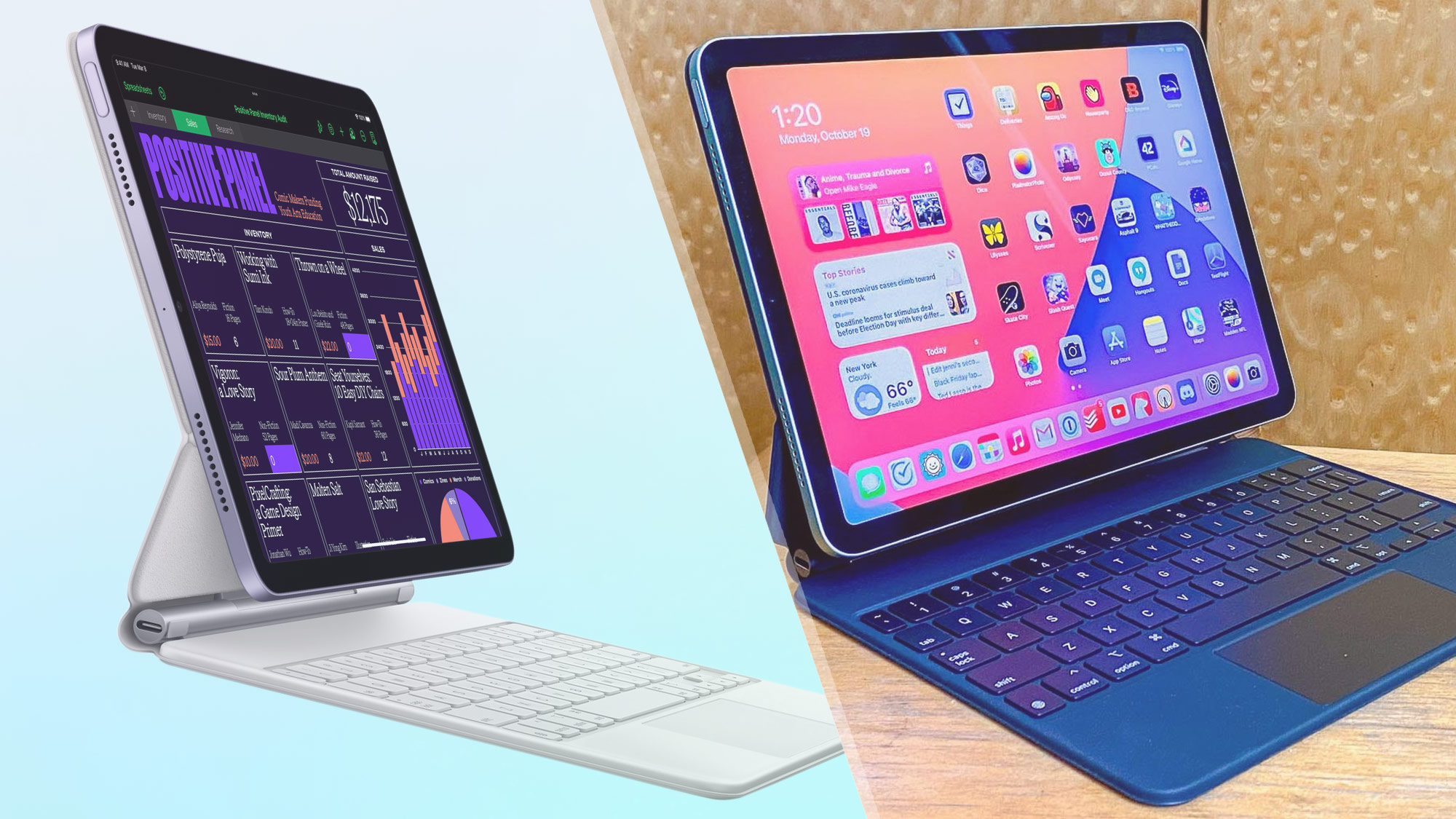
The iPad Air 5 was unveiled during the Peek Performance Apple event March 2022. The new slate looks virtually identical to its predecessor, the iPad Air 4 (2020), and shares many of its features. The biggest difference between the two slates is that the 2022 iteration is powered by the powerful M1 chip, making it the second tablet (after Apple's iPad Pro 2021) to ship with M1 power. But is that enough of a game-changer?
In this piece, we’ll go over the differences between the iPad Air 5 and the iPad Air 4. Do you need to upgrade to the new one, or is the 2020 Air still capable of holding its own? Read on to find out.
iPad Air 5 vs. iPad Air 4: Specs
| Header Cell - Column 0 | iPad Air 5 | iPad Air 4 |
|---|---|---|
| Price | $599 | $599 |
| Screen size | 10.9-inch | 10.9-inch |
| Screen resolution | 2360 x 1640 | 2360 x 1640 |
| CPU | M1 | A14 Bionic |
| Storage | 64GB / 256GB | 64GB / 256GB |
| Rear Camera | 12MP | 12MP |
| Front Camera | 12MP ultra-wide | 7MP wide |
| Battery life | Up to 10 hours over Wi-Fi | Up to 10 hours over Wi-Fi |
| Connectivity | Wi-Fi 6/ 5G | Wi-Fi / 4G LTE |
| Colors | Space gray, starlight, pink, purple and blue | Space Gray, Silver, Rose Gold, Sky Blue, Green |
| Weight | 1.02 pounds | 1.02 pounds |
| Dimensions | 9.7 x 7 x 0.24 inches | 9.7 x 7 x 0.24 inches |
iPad Air 5 vs. iPad Air 4: Price and storage
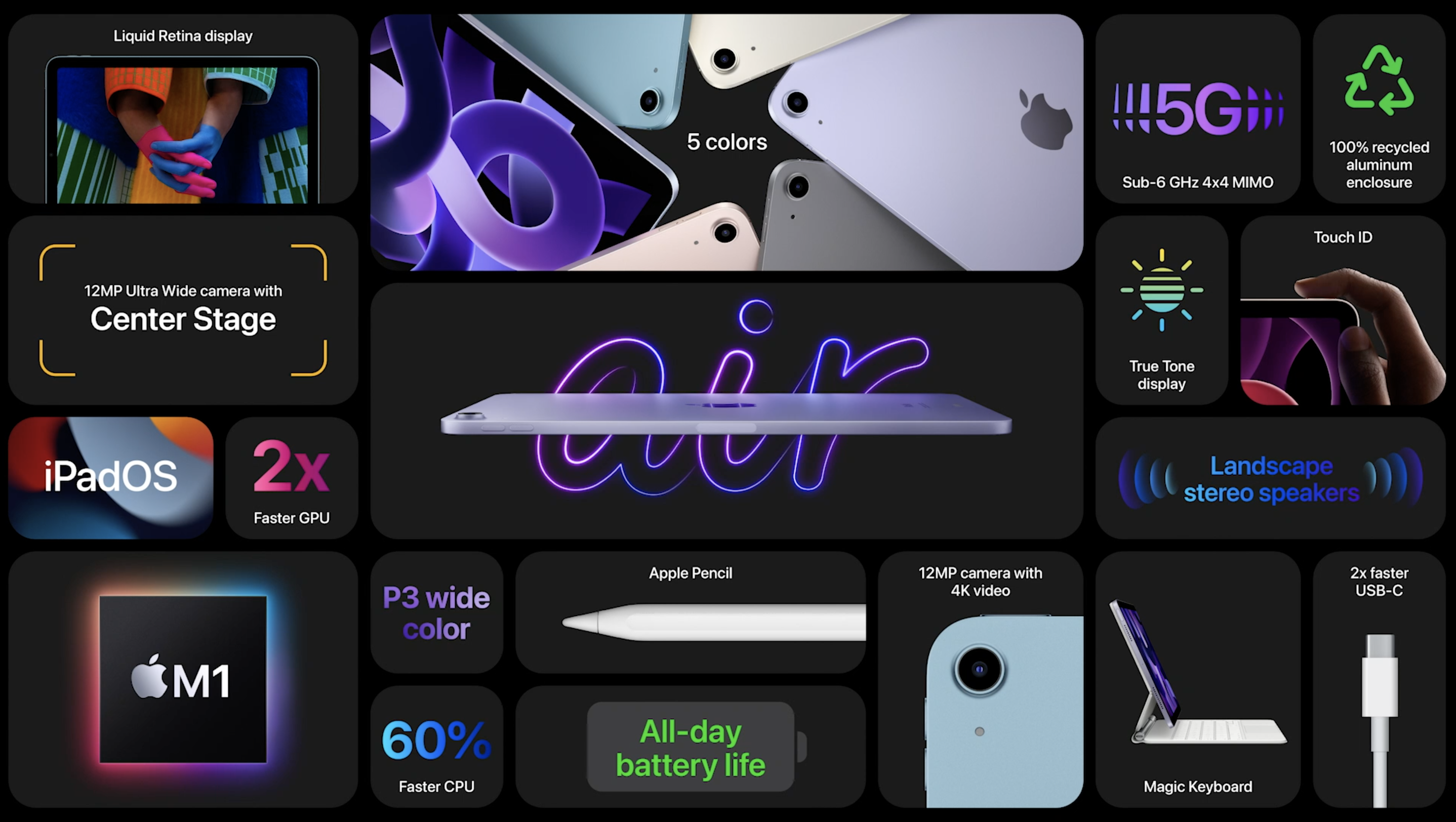
The iPad Air 5 goes on sale on March 18, with pre-orders going live on March 11. The Wi-Fi model has a starting price of $599 while the Wi-Fi + Cellular model costs $749. It comes in configurations packing 64GB and 256GB of storage. Available finishes include space gray, starlight, pink, purple and blue.
That's identical to the pricing, connectivity, storage and color options for the iPad Air 4. It’s likely that the price of the iPad Air 4 will soon drop at third-party retailers and resellers, as its now been replaced on the Apple website by the Air 5.
iPad Air 5 vs. iPad Air 4: Design
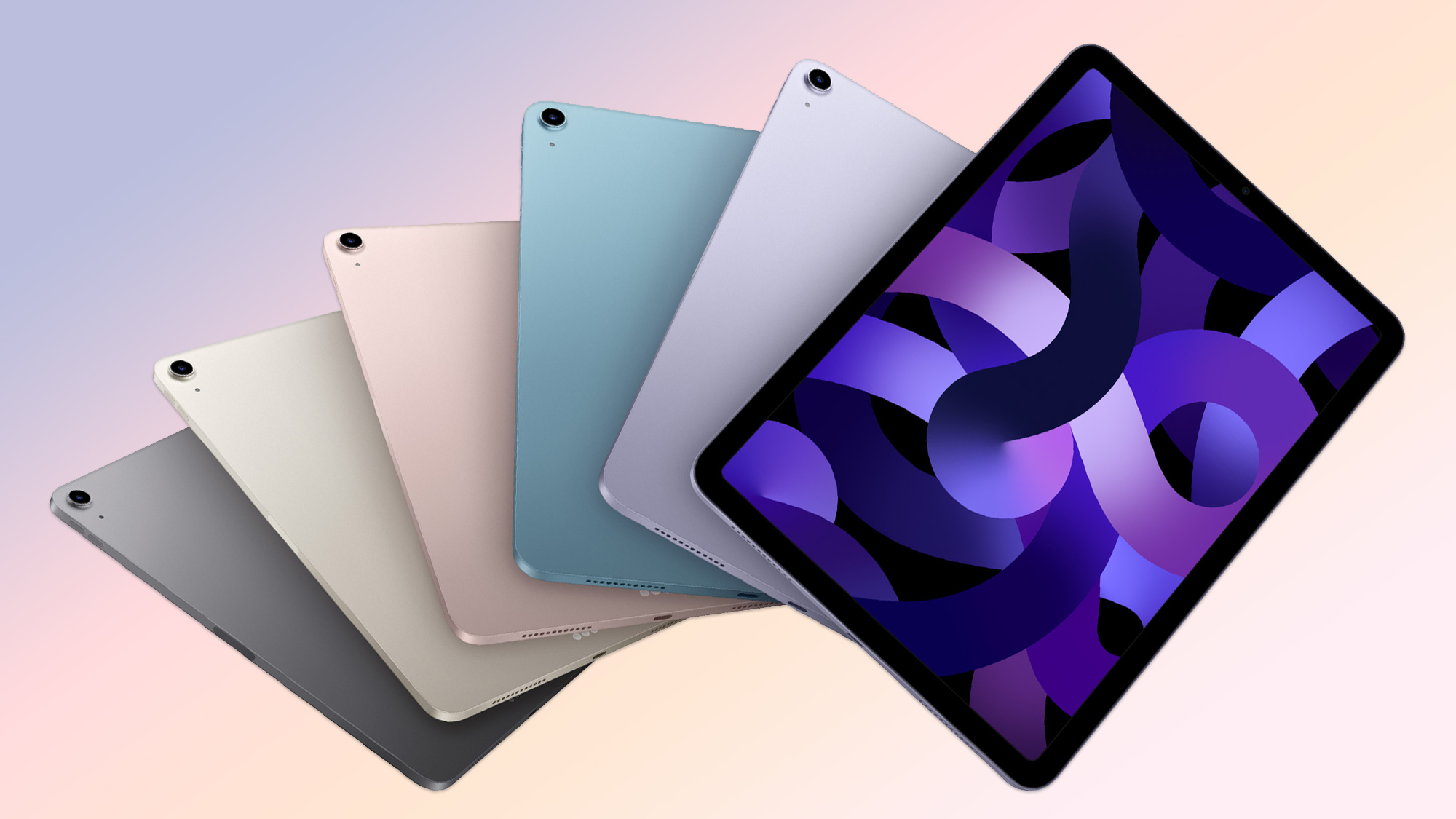
The iPad Air 5 is virtually identical to its predecessor in terms of design. If you set them side by side, it’d be hard to tell them apart. Both measure 9.7 x 7 x 0.2 inches and weigh 1.02 pounds. They also have 10.9-inch screens and USB-C connectivity.
As Apple’s thinnest and lightest tablet, it makes sense that the company would keep the same basic design from 2020’s model. No need to fix what isn’t broken, as the old saying goes.
It's worth noting that some users are complaining about iPad Air 5 build quality.
iPad Air 5 vs. iPad Air 4: Display
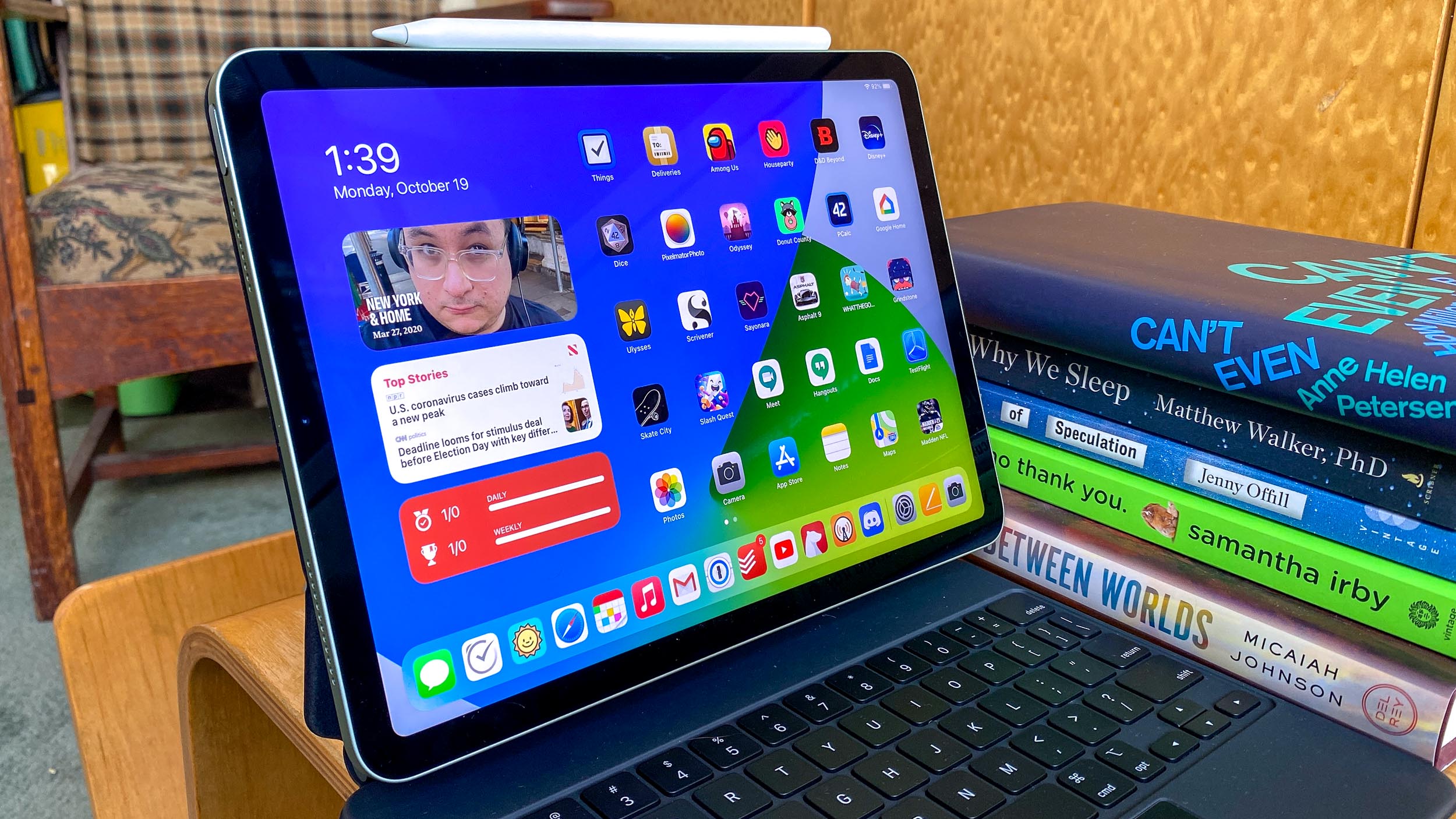
As with the overall design, the iPad Air 5’s screen appears little different from the 2020 model. Both tablets have 10.9-inch Liquid Retina displays with a resolution of 2360 x 1640 pixels. According to Apple, the iPad Air 5’s display can reach 500 nits of brightness. The screen also features a P3 wide color gamut, True Tone and an anti-reflective screen coating.
In our review of the iPad Air 2020, we noted that the screen achieves an average brightness of 440 nits (per our testing). If the iPad Air 5's screen is the same, then we can expect the same results. The new slate doesn’t have a 120Hz refresh rate, which is also the case with the previous iteration.
We were impressed with the picture quality of the iPad Air 4 so we expect to be just as pleased with the iPad Air 5 – even though it doesn’t have an OLED display as pre-release rumors suggested.
iPad Air 5 vs. iPad Air 4: Performance
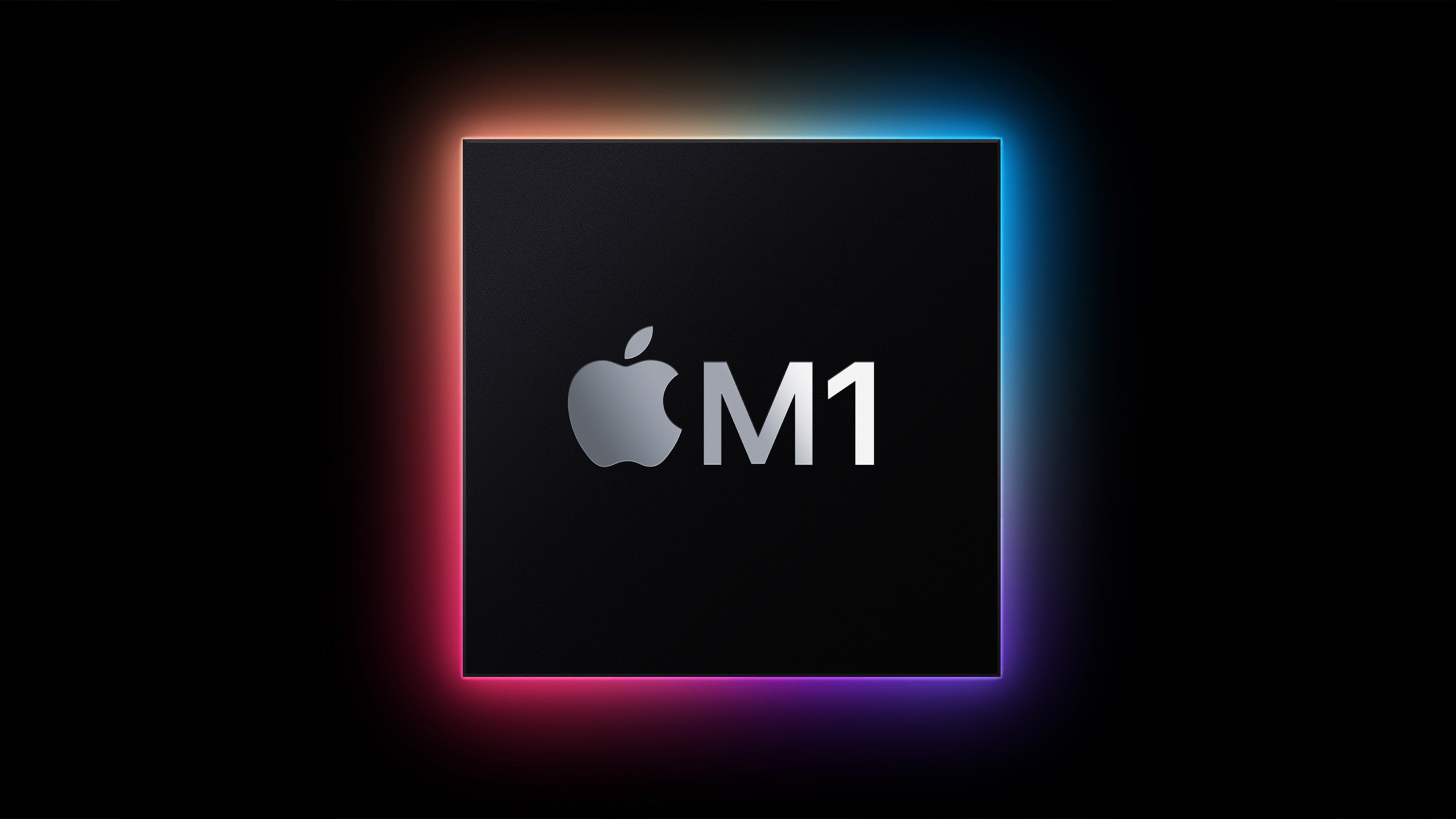
The iPad Air 5’s M1 chip is the biggest thing that distinguishes it from the A14-powered iPad Air 4. 2020’s slate wasn’t a slouch in terms of performance. It didn’t stutter even when we ran YouTube videos while having multiple tabs open. As performant as the A14 chip is, it pales in comparison to the M1 chip – which offers 50% more power than the A15.
The M1 offers an 8-core CPU, 7-core GPU and 8GB of RAM in its lowest configuration, compared to the A15 Bionic’s 6-core CPU and 5-core GPU. Not to mention the fact it’s designed to be energy efficient and should offer a noticeable boost in battery life.
Plus, the M1 chip's Neural Engine should help improve the quality of images and video captured by the iPad Air 5's camera thanks to its image processing tech.
iPad Air 5 vs. iPad Air 4: Cameras
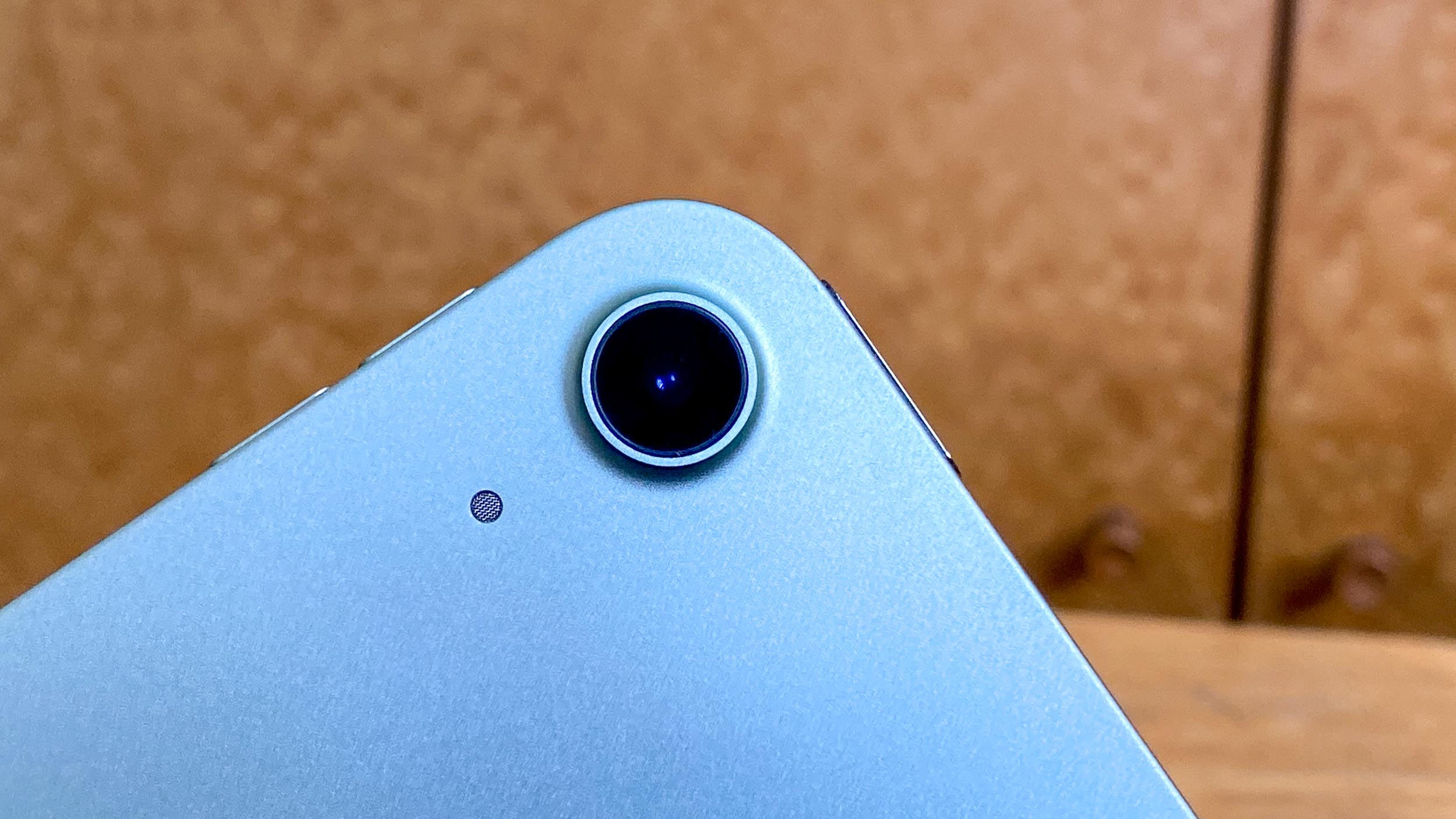
The new and old iPad Air each have 12MP rear-facing cameras. However, whereas the previous model had a 7MP front-facing camera, the iPad Air 5 now has a 12MP Ultra-Wide camera. While we aren’t exactly fans of using tablets to take selfies, it’s great to have a front-facing camera that can show you in the best light possible during video calls.

The Ultra-Wide camera features Apple's Center Stage feature, which automatically pans to keep you in view as you move around. If someone joins you, the camera detects them and smoothly zooms out to include them in the shot. Considering how folks are still working or hanging out with friends remotely, this is a great feature to have.
iPad Air 5 vs. iPad Air 4: Battery life
The iPad Air 4 offers great battery life, lasting 10 hours and 29 minutes on the Tom's Guide web-surfing-based battery test. That's pretty solid, but the iPad 2021 (12:57) and Samsung Galaxy Tab S8 (12:52) lasted longer.
It will be interesting to see how long the iPad Air 5’s battery lasts considering it runs on the more energy-efficient M1 chip. Apple claims that the new slate has all-day battery life, but that may not be the case. The M1-powered 11-inch iPad Pro 2021 lasted over 13 hours in our battery test before running out of juice, so we have high hopes for an M1-powered Air.
iPad Air 5 vs. iPad Air 4: Outlook
The iPad Air 5 having an M1 chip is the main thing that distinguishes it from its predecessor. But is that enough to make it superior to the iPad Air 4?
Almost certainly, but we can't say for sure until we put the new slate through our testing regimen. Stay tuned for our full review.
With that said, the iPad Air 4 is still one of the best tablets for most people, so if you don't upgrade you've still got a fantastic device in your hands. But if you were interested in a new Air, the iPad Air 5 looks like a great investment — unless you want to hold out and see if you can get the old model at a good discount.
Sign up to get the BEST of Tom's Guide direct to your inbox.
Get instant access to breaking news, the hottest reviews, great deals and helpful tips.

Tony is a computing writer at Tom’s Guide covering laptops, tablets, Windows, and iOS. During his off-hours, Tony enjoys reading comic books, playing video games, reading speculative fiction novels, and spending too much time on X/Twitter. His non-nerdy pursuits involve attending Hard Rock/Heavy Metal concerts and going to NYC bars with friends and colleagues. His work has appeared in publications such as Laptop Mag, PC Mag, and various independent gaming sites.
